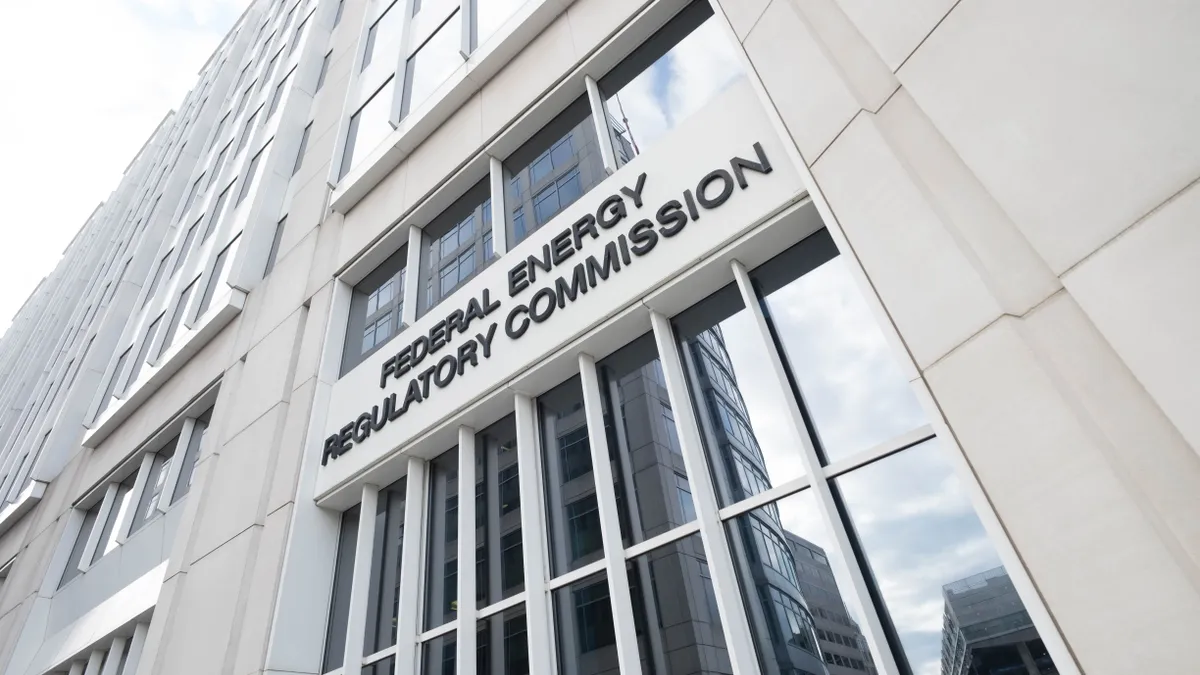Dive Brief:
-
The Federal Energy Regulatory Commission (FERC) on Thursday authorized the construction of two natural gas pipeline projects, but denied to reconsider a decision that blocked a controversial project in New York.
-
FERC authorized the construction of the Eastern Panhandle Expansion Project and the Texas and Louisiana Market Expansion Project, as well as an upgrade to the North Seattle pipeline in Washington. The commission, however, refused to revisit a decision that blocked the construction of the Constitution pipeline.
-
FERC also bid farewell to Commissioner Robert Powelson, who will leave FERC next month to head a water utility trade group. The Republican's departure could let Democrats deadlock commission votes in a 2-2 split until a replacement is confirmed, but FERC Chairman Kevin McIntyre said he "doesn't anticipate a raft of 2-2 votes."
Dive Insight:
Powelson's departure comes as FERC is in the middle of major proceedings regarding grid resilience, PJM's capacity market and the first review of its pipeline approval policy since 1999.
His departure will even the partisan balance at FERC, giving Democrats the power to block commission decisions, but McIntyre said he does not expect many delays in infrastructure permitting or changes to how the commission approaches its resilience or pipeline review dockets.
"We always endeavor, particularly where the matter at hand to be addressed is sensitive or controversial, we work extra hard to try to all get on the same page, so I believe that will continue to be a fruitful way for us to proceed," McIntyre said.
The GOP majority at FERC used Powelson's last meeting to push through 3-2 votes approving the Texas Expansion and Millennium pipeline projects. LaFleur said she was close to voting to approve the latter project, but last-minute changes to the majority's order convinced her to change her vote.
It remains unclear what those changes to the majority order were, but LaFleur's dissent on the Texas project, as well as concurrences she issued on two other orders, centered on FERC's accounting of greenhouse gases in pipeline approvals, a longstanding issue between this crop of FERC regulators. Glick also focused on climate as he dissented from each pipeline approval.
The climate disagreement stems from a 2017 D.C. Circuit Court ruling, which found that FERC should more completely consider the greenhouse gas implications of new pipeline projects, including their impact on the production and consumption of natural gas.
The GOP majority at FERC responded by asserting that production and consumption impacts are too imprecise to judge in the record, and so would not be considered. LaFleur responded by announcing she would nevertheless consider the impacts in casting her own votes, and Glick by dissenting from each pipeline order that does not include the expanded emissions accounting.
FERC's GHG accounting for pipelines could change through its review of its approval policies, which McIntyre said would likely not be completed by the time Powelson steps down. Comments in the docket are due next week.
"I would love it if we could do that," McIntyre said, "but that to me seems pretty darn ambitious."
Instead, he said he hopes FERC can issue a decision before the winter, when Powelson, a die-hard Philadelphia sportsfan "transitions from his Phillies cap to his Eagles skicap."
This week, the National Association of Regulatory Utility Commissioners, which represents state legislators, sent a letter to the Trump administration urging them to appoint someone with state regulatory experience to FERC, as Powelson is the only current member who served on a state commission. McIntyre endorsed that call in comments to reporters after the meeting.
"I think there's an obvious advantage to having that background particularly since I expect the issues concerning the overlap of state and federal jurisdiction will only grow in the foreseeable future," McIntyre said. "His perspective on that has been helpful to all of us."














